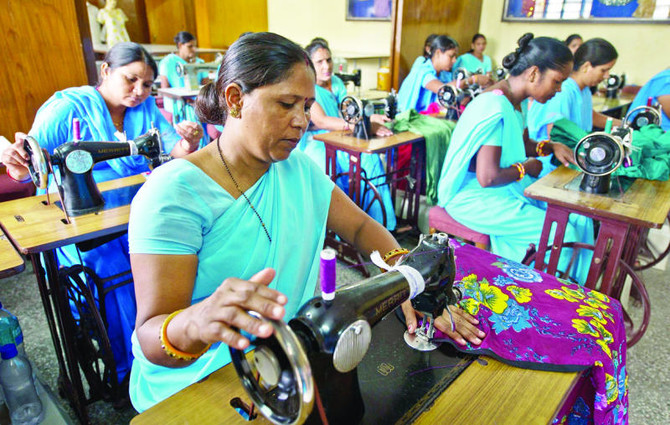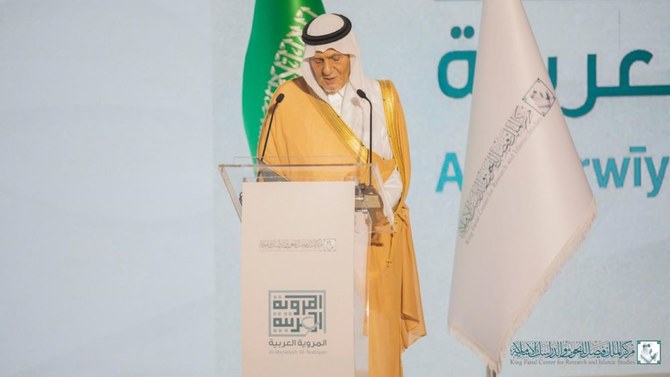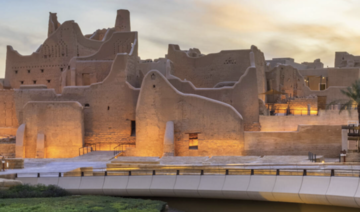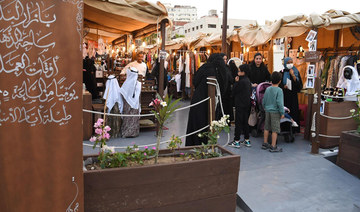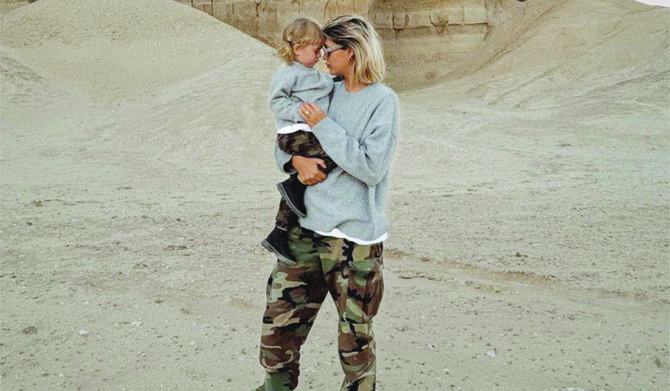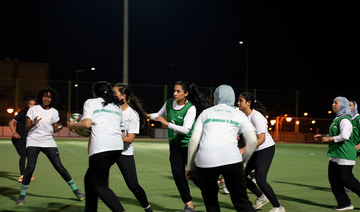With both hands holding the basket of human excrement on her head, widowed grandmother Kela walks through a stream of sewage, up a mound of waste and then dumps the filth while cursing.
“Nobody even pays us a decent wage!” she spits as she rakes mud and rubbish over her newly deposited pile, one of several she drops in the course of her working day cleaning toilets as a “manual scavenger” in India.
She and around 20 other women in the village of Nekpur, 60 kilometers (40 miles) from New Delhi but a world away from its relative wealth, remove the contents of toilets daily using just their hands and a plastic shovel.
Already illegal under a largely ineffective 1993 law, the government has promised to have another go at stamping out the practice with new legislation set to come up in the last parliament session of the year, which opens this week.
Kela and her fellow scavengers in Nekpur live in a handful of mud houses, isolated from the rest of the village. They are considered low-caste even by fellow low-caste Hindus and are seen as the ultimate “untouchables.”
Discrimination has eased recently but still they are prevented from keeping livestock and are sometimes stopped from walking near powerful people.
“My life has passed doing this,” Kela, a withered illiterate woman thought to be around 60, explained to AFP.
She started after she married — she thinks she was aged 11 or 12, but can’t be sure — and is in no doubt about the undignified nature of her profession.
“The smell goes to your head. I often feel sick. After all, we are also humans.”
One of the homes she visited was Parveen’s, a widowed mother whose small brick construction and concrete yard is home to nine people and three generations.
The toilet — a brick wall around a hole above a pit containing ash and dirt — is emptied from an access point outside on the street, where Kela scoops out the “night soil” into her wicker basket.
“We feel bad about it,” says Parveen when asked about the women’s plight. “We pity these women and sometimes we try to help them.”
She says she pays Kela one piece of bread (a chapati) a day and five kilograms of food grains a month. No money is exchanged, as is the case for other scavengers.
Nekpur, a few hours bumpy drive from Delhi, is the sort of rural backwater found in Northern India where the estimated 200,000 scavengers nationwide continue to toil.
Swarms of mosquitoes hover above open drains as naked or barely clothed children play on the streets. Buffaloes outnumber vehicles in the streets. The new legislation modifies the 1993 law — which criminalized the scavengers — raising the prospect of an end to a practice seen as a medieval throwback with no place in modernizing India.
The new law would prohibit the building of non-flushing toilets that must be emptied by hand, and prescribes a one-year jail term and/or a fine of up to 50,000 rupees (900 dollars) for anyone who employs a manual scavenger.
It also requires local authorities to monitor the implementation of the law and sets out tough sanctions if municipalities employ sewer cleaners without protective gear and equipment.
Men wearing only underpants and equipped with just a hoe and a wooden bar can still be found in some towns heading into the stinky depths of septic tanks and sewers.
The national railways — described recently as “the largest open toilet in the world” by a federal minister — are also often picked clean by the scavengers.
Bindeshwar Pathak, of the sanitation charity Sulabh International, says the legislation could prove helpful, but that the final test will be on the ground.
“In India there are many laws that have not helped so far, like (the one to prevent) dowry. Dowry cases are still going on, there is child labor,” he said.
“It needs to go both ways: on one hand, the legislation, the other is implementation.”
He says there has not been a single successful prosecution under the 1993 Act.
Other activists say public funds intended to retrain scavengers are held back because of bureaucratic inertia or corruption.
“In our democracy, it’s a numbers game. If a community is small, no-one cares for them,” said Vidya Rawat, director of the Delhi-based Social Development Foundation, which works with scavengers.
He says the only solution is for the government to find jobs for the scavengers, requiring an extension of a vast affirmative action program which reserves positions for the low-castes and marginalized tribes.
“Rehabilitation programs don’t work,” he added. “If a community woman leaves her work and opts to open a tea shop, no one will go to drink at her place.”
The persistence of manual scavenging can be traced to deep-rooted factors which continue to afflict India despite three decades of high economic growth.
Caste-based discrimination and the notion of “untouchability” in rural India persists more than 60 years after independence hero Mahatma Gandhi called it the “greatest blot upon Hinduism.”
Manual scavenging also points to the lack of investment in modern sewerage systems by a weak state which struggles to provide basic services.
A 2011 survey by the Central Pollution Control Board revealed only 160 out of nearly 8,000 towns had sewerage systems and a sewage treatment plant.
But the women in Nekpur are among the lucky ones in their profession, however, benefiting from a rehabilitation progamme with a chance of success.
Since AFP visited in June, they have been retrained by Sulabh and are now making soaps and candles, holding out hope that they and their children might escape a destiny of humiliation and disease.


